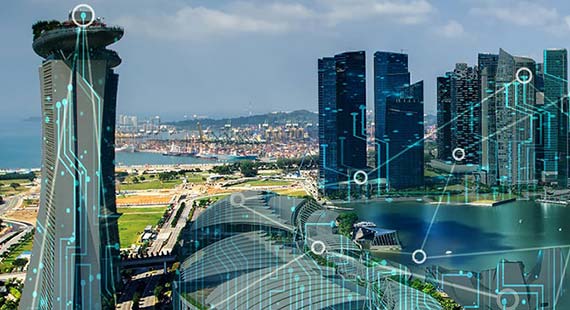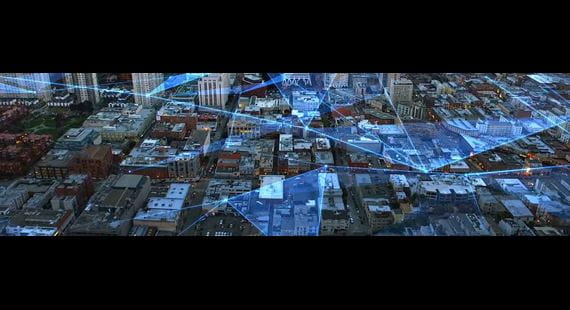
Standards make cities smarter
Standards make cities smarter
"Cities will have to navigate a whole host of challenges in their pursuit of sustainability. Setting international standards to govern sectors like mobility, energy and water in the urban development process will be crucial to enable smart cities to reach their goals."
Norbert Rupp
Business Unit Manager, Building Advisory Services, TÜV SÜD
Friday, October 13, 2017
World Standards Day happens on 14 October every year. The 2017 World Standards Day aims to highlight the ways in which ‘Standards make cities smarter’.
Developing an integrated, interoperable Smart City is a challenge. A Smart City is beyond designing digital technologies that fit into the city. It is an intelligently thought through concept that pursues a quality urban lifestyle for its inhabitants with respect to resource efficiency and sustainability. Thus, combining the right set of resources with the respective suitable technology are the drivers that steer a city to become smart – from mobility to waste, energy to water supply, governance to buildings.
A huge challenge lies within the compatibility of systems. Structures and technologies from different suppliers have to be congruent; they must support information exchange, data analysis and information security.
The Morgenstadt initiative, of which TÜV SÜD is a founding member, spearheads solutions for the city of the future. TÜV SÜD has also been involved in the European Triangulum project since 2015, that is set to demonstrate, disseminate and replicate solutions and frameworks for Europe’s future smart cites. Amidst increasing urbanisation, building a liveable city mandates us to make sustainability a priority. The infographic below, which was developed based on research of the Morgenstadt network, illustrates the core product – a Smart City Assessment. It provides a comprehensive checklist to determine the future-readiness and key considerations of a smart city and how to chart an efficient and practical path towards a more sustainable future.

Assessing and improving the city’s “Smart & Sustainability profile” is a very important first step in order to enable a city to become future-oriented according to a holistic, human-centered strategy. However, in order to deliver upon the immense potential of Smart Cities, it requires International standards to support a smooth and interoperable city development.
In building a smart city, existing suppliers often install infrastructures that work in silos. For these systems to interconnect and be interoperable, standards become necessary to provide a common language for devices to understand each other and communicate. An ISO technical committee for sustainable cities and communities was set up in order to align and contribute to the UN sustainable development goals. For example, ISO 37100 was developed to standardise terminologies relating to sustainable cities and smartness as a response to differing interpretations of smart city terms.
The creation of these standards provides a foundation of globalised data standards that supports future developments. It further enables valuable international benchmarking and allows for the development of new business models within a Smart City. The overall goal is to accompany the inexorable evolvement of our future built environment as best as possible with the interest of the entire population in mind.



Accreditation the catalyst for sustainable urban development
Learn more
Site Selector
Global
Americas
Asia
Europe
Middle East and Africa